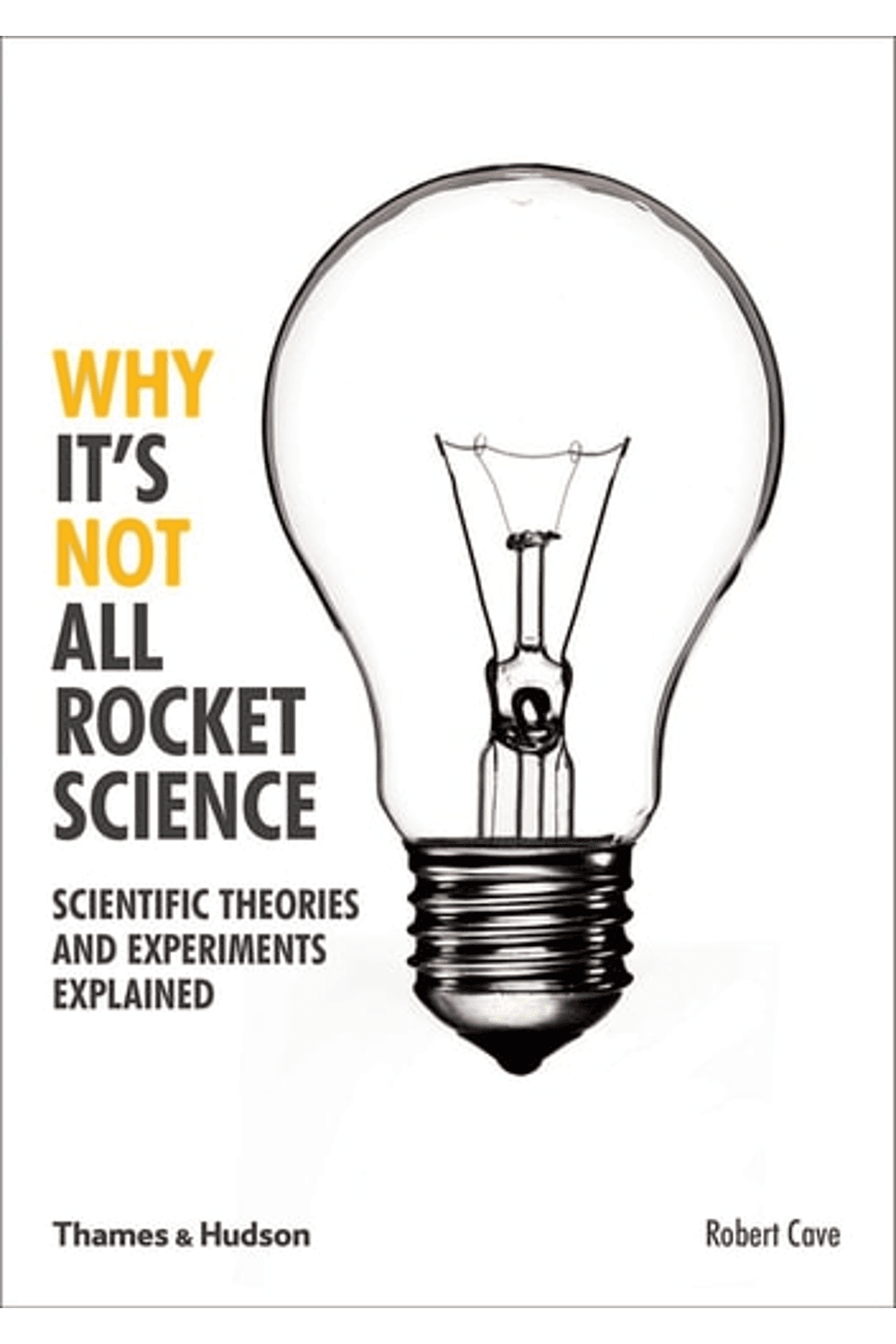Dive into the captivating world of scientific discovery with Robert Cave’s “Why It’s Not All Rocket Science.” This engaging book, published by Thames & Hudson, explores 100 groundbreaking and quirky experiments that have shaped our understanding of science, medicine, psychology, and society. From Justin Schmidt’s notorious pain index to the revolutionary creation of Dolly the sheep, Cave expertly reveals the stories and implications behind these pivotal moments. This accessible and insightful read is perfect for anyone curious about the history of science and the ingenuity that drives human innovation. Discover how scientific breakthroughs aren’t always rocket science, but often the result of creative thinking and meticulous observation. Perfect for science enthusiasts and curious minds alike!
Why It’s Not All Rocket Science /anglais
19,55 $
In stock
Description
In 1983 Justin Schmidt recorded the degree of pain he felt when stung by different venomous insects, resulting in the Schmidt Pain Index. With chapters on medicine, psychology, society, and the universe, this book examines 100 experiments, ranging from the peculiar (like Schmidts) to the groundbreaking (the creation of Dolly the sheep), and appraises their significance for practical science.
Embark on a captivating journey through the annals of scientific exploration with "Why It's Not All Rocket Science," authored by Robert Cave. This enthralling paperback, published by Thames & Hudson in 2016, delves into 100 fascinating experiments that have shaped our understanding of the world, spanning from the quirky to the revolutionary. Cave doesn't just present the experiments; he dissects them with a keen eye, examining their impact on medicine, psychology, society, and our comprehension of the universe. Prepare to be intrigued by experiments you may have never heard of, juxtaposed against those iconic breakthroughs that forever altered the scientific landscape. One intriguing example showcased within its 224 pages is Justin Schmidt's self-inflicted stings, culminating in the infamous 'Schmidt Pain Index.' This pursuit of quantifying pain, while unconventional, highlights the human drive to categorize and understand even the most visceral experiences. The book doesn't shy away from the less conventional, celebrating the innovative thinking behind such unorthodox approaches. Beyond the Schmidt Pain Index, "Why It's Not All Rocket Science" explores experiments that pushed the boundaries of scientific possibility. Learn about the groundbreaking creation of Dolly the sheep, a monumental achievement in cloning that sparked ethical debates and redefined our understanding of genetics. Cave expertly guides the reader through the intricacies of this experiment, revealing its profound implications for future research. Robert Cave masterfully connects the historical context of each experiment to its lasting legacy. He explores not only the 'how' of each discovery, but also the 'why' the motivations, the societal influences, and the ripple effects that continue to shape our world. This book isn't just a compilation of scientific facts; it's a narrative of human curiosity, ingenuity, and the relentless pursuit of knowledge. "Why It's Not All Rocket Science" is more than just a survey of experiments; it's an exploration of the scientific process itself. Cave illuminates the creativity, the dedication, and the occasional element of serendipity that drive scientific progress. Whether you're a seasoned science enthusiast or simply curious about the world around you, this book offers a compelling and accessible introduction to the experiments that have shaped our understanding of ourselves and the universe. This book makes science less intimidating, and demonstrates that breakthrough insights can come from the most unexpected places. Dive in and discover the stories behind the science!
Additional information
| Authors | |
|---|---|
| Binding | |
| Condition | |
| ISBN-10 | 0500292000 |
| ISBN-13 | 9780500292006 |
| Language | |
| Pages | 224 |
| Publisher | |
| Year published | |
| Weight | 470 |
SKU: M-9780500292006-0
Categories: Experiments, History, Science
- Additional information
- Currencies
- USD – United States dollar
- EUR – Euro
- GBP – Pound sterling
- CNY – Chinese yuan
- BRL – Brazilian real
- MXN – Mexican peso
- JPY – Japanese yen
- PHP – Philippine peso
- THB – Thai baht
- PLN – Polish złoty
- CAD – Canadian dollar
- MYR – Malaysian ringgit
- AUD – Australian dollar
- TWD – New Taiwan dollar
- CZK – Czech koruna
- SEK – Swedish krona
- HUF – Hungarian forint
- ILS – Israeli new shekel
- CHF – Swiss franc
- HKD – Hong Kong dollar
- DKK – Danish krone
- SGD – Singapore dollar
- NOK – Norwegian krone
- NZD – New Zealand dollar





